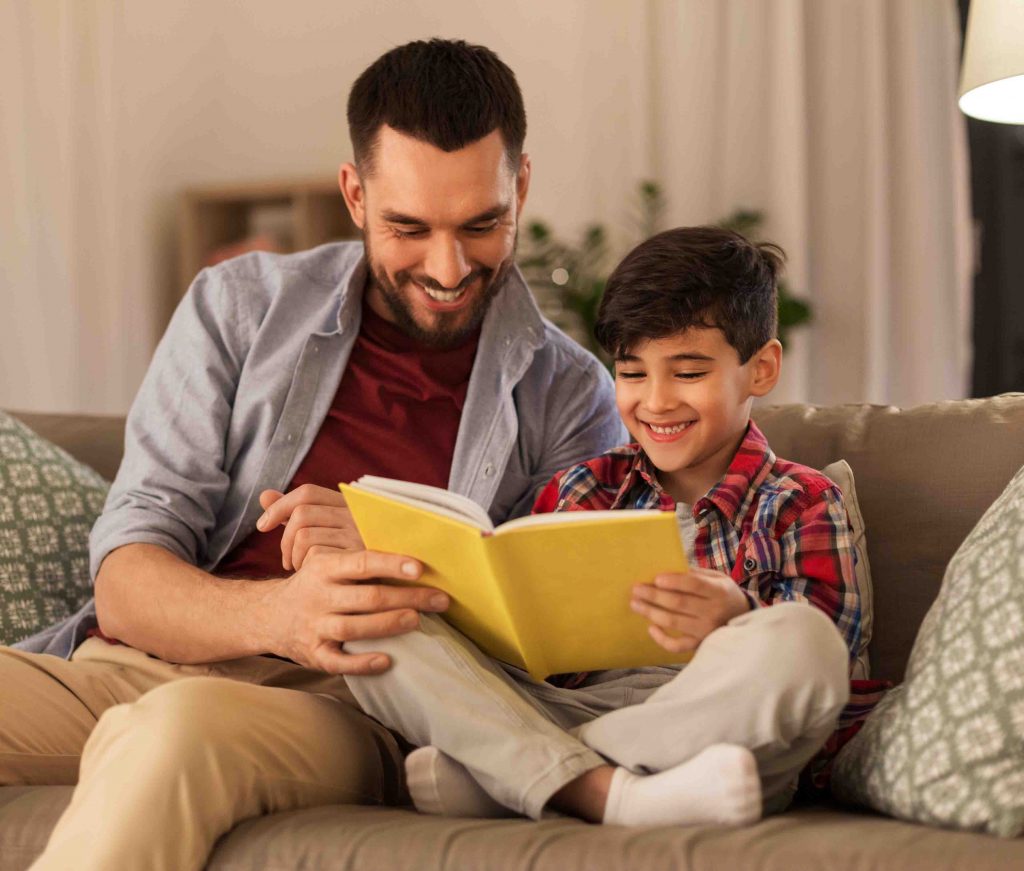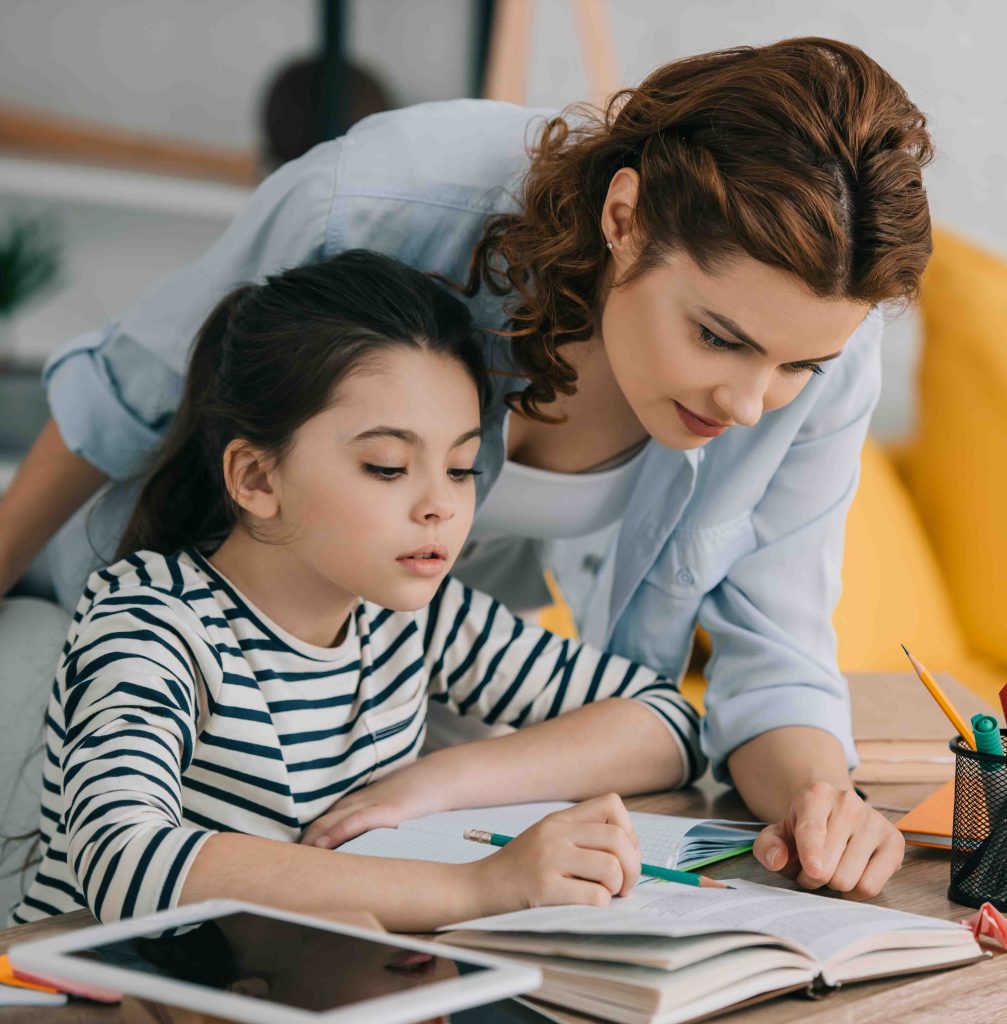
Your child is reading a novel. That is a good thing! But you might actually like to know a bit more about the subject: What lessons or ideas does the novel have to offer? What is my child taking from it? How well is my child understanding it? Why this book?
If you are like most parents, getting satisfying answers to these questions can be challenging. It can feel impossible if the novel is one you’ve never read.
Your next thought may be, “I will read the book myself!” After all, reading fiction is as much about connection as it is comprehension. “Sharing is caring” is an adage that applies perfectly to literature. Talking about a book can open a child’s eyes to ideas that come from outside themselves while allowing them to give voice to the thoughts that come from within.
But you’ve got so many things pulling your attention in so many directions, and sitting down to read a 256-page novel is not realistically going to happen any time soon. Besides, your kid is into this book right now, not next week.
So how can you talk to your young reader about a book you’ve never read? How can you be prepared in the moment to discuss something you really don’t know anything about?
Here are some approaches, ideas, and questions to try.
- Talk, don’t test. Have a conversation.
Keep it informal. No one should be reminded of schoolwork while this is happening. This will not be on the test. We’re just talking here!
- Ask specific questions. And then ask specific follow-up questions.
Avoid questions that are too general. “What do you think of the book?” is probably going to get you an “It’s good” response. Ask “What’s it about?” and you are not likely to get much analysis or introspection.
But how can you ask specific questions about an unfamiliar novel? That’s what #3–5 on this list are for. Use those prompts to guide your child’s focus and increase your chances of having an enlightening conversation.
Choose the questions that make most sense to you. Adjust the wording as needed to make them comfortable and authentic. And be prepared to follow up your child’s answers with something along the lines of “Give me an example of that” or “I think I understand, but tell me more.” Don’t let the conversational momentum be stalled by a one-word answer.
- Ask questions about characters. Answers about plot will tag along for the ride.
In general, children’s and YA (Young Adult) literature is very character-driven. Adults may read novels about protagonists who are completely unlike them, but this is usually not the case for children. The authors of children’s and YA novels want their young readers to identify with the main character(s).
So ask questions about the main character(s):
- Who is the main character? Why are they in the world of this story?
- What is something memorable that happens to the main character? Why was that memorable?
- What is something memorable that the main character does? Why was that memorable?
- Does the main character change at all as the story goes along? How?
And then include a few questions about the minor characters:
- Which character most helps the main character? How?
- Which character most hurts the main character? How?
- Were there any characters who you felt one way about in the beginning of the story and then felt differently about by the end of the story?
- Ask questions about choices. Characters make choices, and authors do, too.
When we talk to our children about choices we can make in how we treat others, how we feel about ourselves, and just about anything else, the situations are often hypothetical and the concepts are often abstract. Lean on literature to explore these ideas in more concrete ways. Discuss the choices characters make and the consequences of those choices.
While you’re at it, work in some thoughts about the choices the author makes. Artists make art that makes us feel stuff, right? How do they do that? Being aware of the author’s craft can help make your children become better readers, writers, and thinkers.
Ask questions about the characters’ choices:
- What was one “bad” choice that a character made in this story? Why do you think they made that choice? Did they end up regretting that choice? (You may want to also talk about the word “bad.” Could a more accurate word be used to describe the choice that was made?)
- What was one “good” choice a character made in the story? What was a different choice they could have made? What might have happened if they made that choice? (You may want to also talk about the word “good.” Could a more accurate word be used to describe the choice that was made?)
Ask questions about the author’s choices:
- Where does the story mostly take place? Why does it need to take place there?
- Do the chapters end in a way that makes you want to keep reading? Why do you think that is?
- What are one or two really memorable scenes in this book? Why are those scenes so memorable?
- Ask questions about empathy and experience.
We don’t just read one book in our lives or see one film. We experience all kinds of art, and the lessons we take from each artwork build upon one another. The same goes with our understanding of other people. Literature gives us a valuable perspective from which to observe characters’ actions and choices and to try to understand what they do and why they’ve done it.
- Why do you think people like this book?
- Would you like being a character in the world of this book? Why or why not?
- One year from now, what do you think you will most remember about this book? Why will that be the thing that most sticks with you?

Why Novels? Why Now?
The past 16 months have been tough on our children and on us parents. As we enter the second summer of these uncertain times, there are a lot of us who are worried that our children have suffered some amount of learning loss. But we don’t all feel prepared or qualified to fill in the gaps, and we don’t know where to begin. Reading novels at home this summer and discussing them is an organic way to infuse learning into an activity many children will do on their own.
The reason this works is because there are so many fantastic novels available to children in the upper elementary grades and middle school. These contemporary novels feature relatable characters, appealing genres, and engaging storylines. Many are as well written as the 20th century classics kids encounter in school, but these newer novels are of higher interest to today’s young readers.
Two great examples of contemporary novels your child may enjoy are Out of My Mind by Sharon M. Draper and The City of Ember by Jeanne DuPrau. For guides to discussing these novels with your children, check out our Novels at Home series: Discussing Out of My Mind with Your Young Reader and Discussing The City of Ember with Your Young Reader. These guides will keep you in the loop and give you the questions to ask and ideas to explore.

Oh this si great. It seems every book my children’s teacher assigns them Is something I havent actually read.